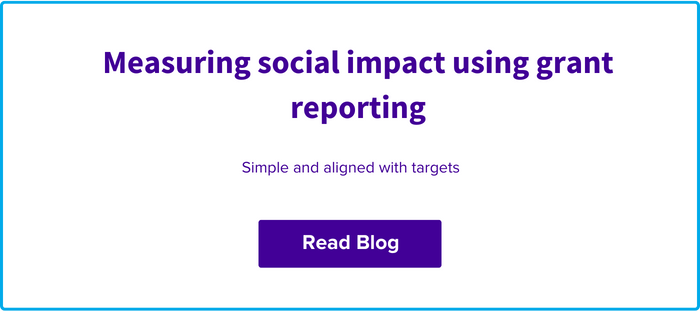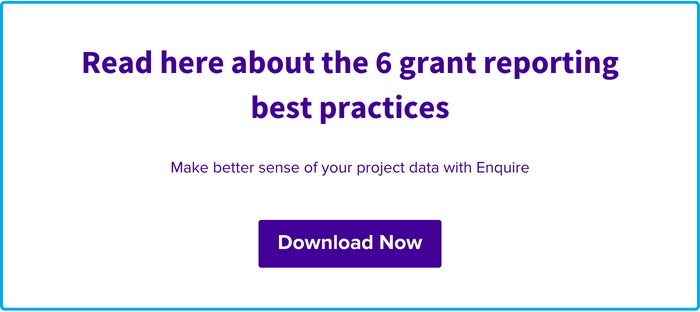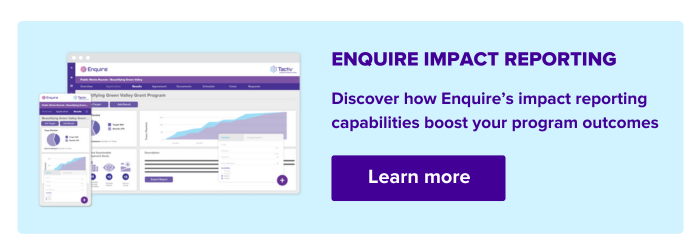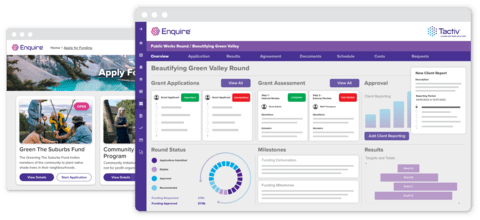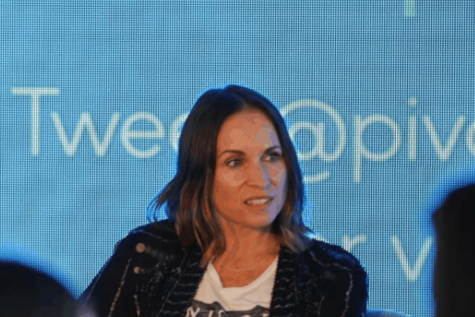Let’s break down the importance of grant reporting
Grant reporting is important because of the insights it provides. Having a clear view on what happens during the grant process and what outcomes and impact are being achieved, is of relevance for several key reasons:
Accountability
Grant reporting ensures accountability by providing a mechanism for grant recipients to demonstrate how they have used the funds received. It allows funders to assess whether the resources provided have been utilised as intended and in accordance with the agreed-upon terms and conditions.
Transparency
Grant reporting promotes transparency by providing a clear and documented account of how funds have been allocated and utilised. It allows stakeholders, including funders, regulatory bodies, and the public, to access information about the use of public or private funds and understand the impact of grant-funded activities. This information is crucial to evidence the need to continue projects and to secure future funding.
Impact Assessment
Grant reporting enables the assessment of the impact and effectiveness of grant-funded projects or programs. By reporting on project outcomes, outputs, and results, organisations can measure their progress towards achieving the intended goals and objectives. This assessment helps identify successful strategies, areas for improvement, and lessons learned for future initiatives.
Compliance
Grant reporting ensures compliance with the terms and conditions set forth by the grant agreement. It helps organisations track and demonstrate adherence to specific guidelines, reporting deadlines, financial regulations, and other legal requirements. Compliance with grant reporting obligations is crucial for maintaining the trust and credibility of the grant administrator and the beneficiaries. Additionally, regulations are rapidly changing, so being agile in terms of the ability to comply with the latest developments is of great importance.
Communication and Stakeholder Engagement
Grant reporting serves as a means of communication between the grant administrator and the beneficiary. It provides an opportunity for organisations to engage with funders, donors, and other stakeholders by sharing progress updates, achievements, challenges, and future plans. Regular reporting fosters trust, strengthens relationships, and enhances collaboration between grant recipients, administrators and funders.
Learning and Improvement
Grant reporting offers organisations a chance to reflect on their projects, programs, and processes, as well as monitoring their programs using progress reporting. By analysing data and results, organisations can identify areas for improvement, evaluate the effectiveness of strategies, and make informed decisions for future initiatives. Reporting also facilitates knowledge sharing within the organisation and with other stakeholders, contributing to a culture of learning and continuous improvement.
In summary, grant reporting plays a crucial role in ensuring transparency, collaboration, insights and continuous improvement. It benefits the grant administrator and the beneficiary but also serves the broader interests of stakeholders, funders, and the public by providing a comprehensive and accurate account of how grant funds are being used to make a positive difference.
➔ How workflows set the stage for solid grant reporting
What does the reporting process look like?
Now that we’ve gone through the importance of grant reporting, how do we execute on the principles of grant reporting. Grant reporting can be done in a variety of ways and depends entirely on what the grant process looks like and what information the grant administration team and other stakeholders would like to see. But the general principles of grant reporting can be outlined as below:
Collecting Data
Collecting accurate and relevant data is the foundation of effective grant reporting. It involves capturing information about project activities, outcomes, finances, and other key metrics. To streamline the data collection process, consider using digital tools, such as Enquire grant management software. Tools can help automate data collection, ensure consistency, and minimise errors. Additionally, establish clear data collection protocols and train staff members to ensure data is collected consistently across projects and timeframes.
If you are looking to measure data against certain key performance indicators (KPIs), it’s important to set these up accordingly. Ensuring alignment between your data collection method and your goals is essential to be able to report accurately.
➔ How optimising the grant application process streamlines reporting
Organising Data
Once the data is collected, the next pillar is organising it in a structured and accessible manner. A well-organised data management system is crucial for efficient grant reporting. By outlining a framework that’s based on your organisational process with its unique requirements, you ensure data organisations in a way that works for you and your reporting needs. Implementing consistent naming conventions, standardised data formats, and logical structures helps data storage that’s easy to interpret. It also enables easy retrieval, reduces the chances of data loss or duplication, and facilitates analysis in the later stages.
Enquire’s software is built on a vertical hierarchy with a portfolio – program – project structure, which is ideal to maintain a clear view of the different elements in your portfolio. Additionally, it structures information is a way that makes it easy to report across the different layers of grant environment. At any given time, you have a set of filters to aggregate your data as you like to get the overview you need. Enquire’s structure and flexibility enables rich reporting insights for enhanced decision-making.
Interpreting Data
Interpreting data involves analysing and deriving meaningful insights from the collected information. This stage of grant reporting allows organisations to assess the progress, impact, and challenges associated with their projects. Also at this stage, your data will be measured against the KPIs that align with your grant objectives. Apply data analysis techniques such as statistical analysis, trend identification, and comparative analysis to gain a deeper understanding of the data. Interpretation of data allows organisations to identify areas for improvement, make informed decisions, and communicate the project’s achievements effectively.
From setting targets, to collecting data, and reporting outcomes to stakeholders, with Enquire’s approach to impact reporting it’s easy to interpret and perfect for organisations of all sizes looking to enhance their transparency and decision making.
Visualising Data
Visualising data is a powerful way to communicate complex information in a clear and concise manner. Visuals such as charts, graphs, and infographics make data more accessible, engaging, and understandable for grant report readers. Exporting data to visualisation tools can show powerful insights in a relatively simple way. Visualising data enhances the report’s readability, aids in storytelling, and facilitates better comprehension of the project’s outcomes.
Enquire’s boasts a range of features that supports in-depth reporting and insights. Enterprise search capabilities provide smart search functions across all core entities. Once configured, smart-search and filter options can be made available across key data attributes. This data can easily be exported, and imported into other tools for further analysis, such as data visualisation tools.
Software for grant insights
By establishing robust systems for data collection and organisation, analysing data to derive meaningful insights, and presenting data visually, organisations can create comprehensive and impactful grant reports.
Grant management software can be incredibly powerful in laying the foundation of grant reporting at the stages described above. Some grant management tools, like Enquire, have a purpose-built vertical hierarchy to measure insights across portfolios, programs and projects, include dashboards for insights at a glance or have powerful capabilities of translating data into visualisations built in.
➔ Discover Enquire’s core capabilities on grant reporting [download factsheet]
Enquire is a grant management system purposefully built to give you the flexibility to configure the software to suit your unique process. Additionally, it boosts advanced reporting functionalities to provide rich insights for informed decision-making.
Want to find out how Enquire can help you with your grant reporting? Read more here or contact us.


